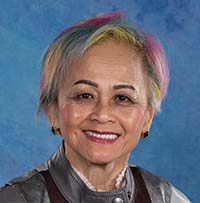The long-awaited launch of Canada’s Rare Disease Drug Strategy will help get therapies to people with rare diseases faster.
As Canada prepares to pivot from reacting to COVID-19 as an unpredictable pandemic crisis to living with COVID-19 as a manageable influenza-like endemic, the federal government is preparing to make an equally momentous pivot in treating Canadians living with rare diseases, with the launch of Canada’s Rare Disease Drug Strategy in 2022.
The most important aspect of this initiative isn’t the government’s commitment of $1 billion to set up the program, nor is it the $500 million annual budget to sustain it. What constitutes a seismic shift is Canada’s recognition that therapies to meet the unmet needs of small and very small patient populations with severe, progressive, life-threatening, and untreated disorders demand unique customized access pathways. For over 40 years, Canada (along with most other countries) has applied to rare drugs the same criteria and tools that were designed for assessing large population drugs, many of which are nth generation incremental improvements on existing therapies with proven impacts on well-characterized conditions.
Rare Disease Day 2022 is an occasion for celebration, even as we continue the fight to beat back COVID-19, because it’s the turning point for affordable and sustainable access to the most appropriate therapies for rare diseases.
The slow pathway to gaining access
It’s no wonder that rare disease drugs were tried and found wanting. The clinical trials were too small or too short — they lacked placebo or proper control groups, relied on biomarkers rather than confirmatory outcome measures, and yielded an incremental cost-effectiveness ratio that was highly uncertain and far above the standard cut-off. In fact, it’s surprising that any rare disease drug at all made it through this highly inappropriate gamut.
Over the years, many countries have developed assessment tools, criteria, and separate access pathways that are more flexible or specific to rare therapies. Canada chose not to follow suit. Not surprisingly, rare disease patients in Canada have lagged than those in many other developed and developing countries in gaining access to approved innovative therapies.

Dr. Durhane Wong-Rieger
President & CEO, Canadian Organization for Rare Disorders
Progress for the rare disease community
For nearly two years, the Canadian Organization for Rare Disorders (CORD), the alliance of rare disease patient organizations, has led the multi-stakeholder consultations on the national Rare Disease Drug Strategy and gained consensus on key aspects, including vision, governance, infrastructure, operating principles, core access pathways, success factors, and the role of patients.
For CORD and the entire rare disease community, Rare Disease Day 2022 is an occasion for celebration, even as we continue the fight to beat back COVID-19, because it’s the turning point for affordable and sustainable access to the most appropriate therapies for rare diseases. We’re confident of success on both fronts.


